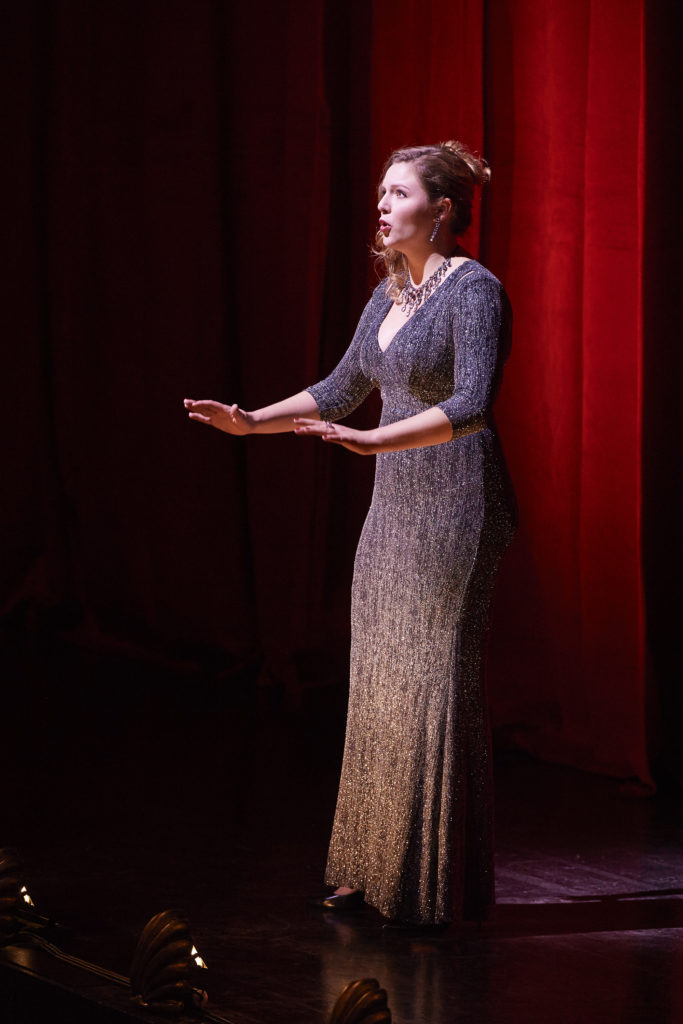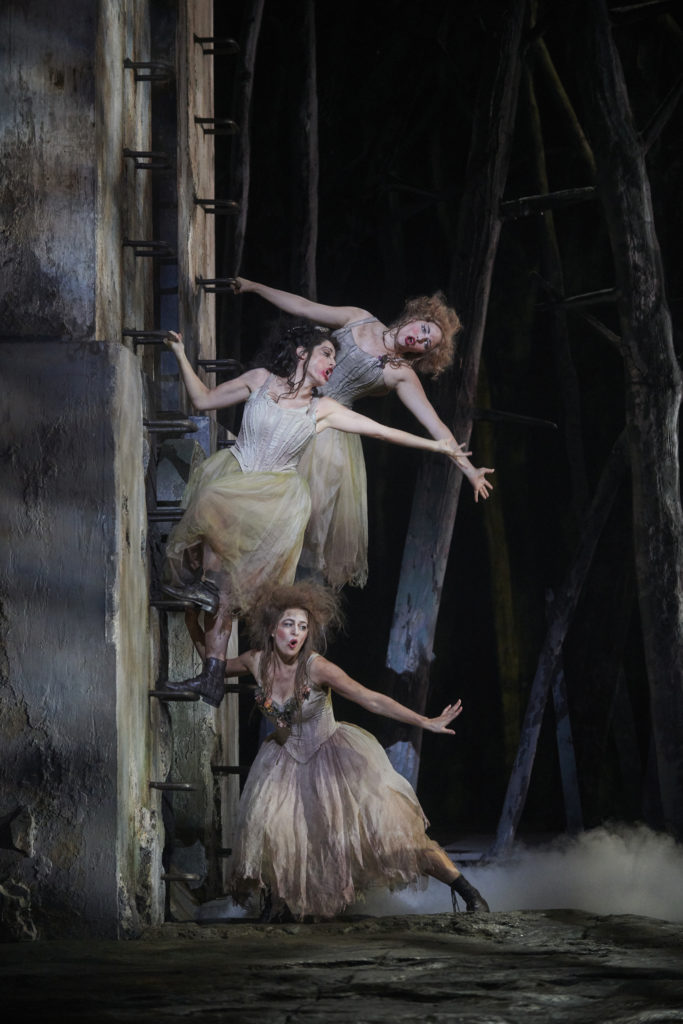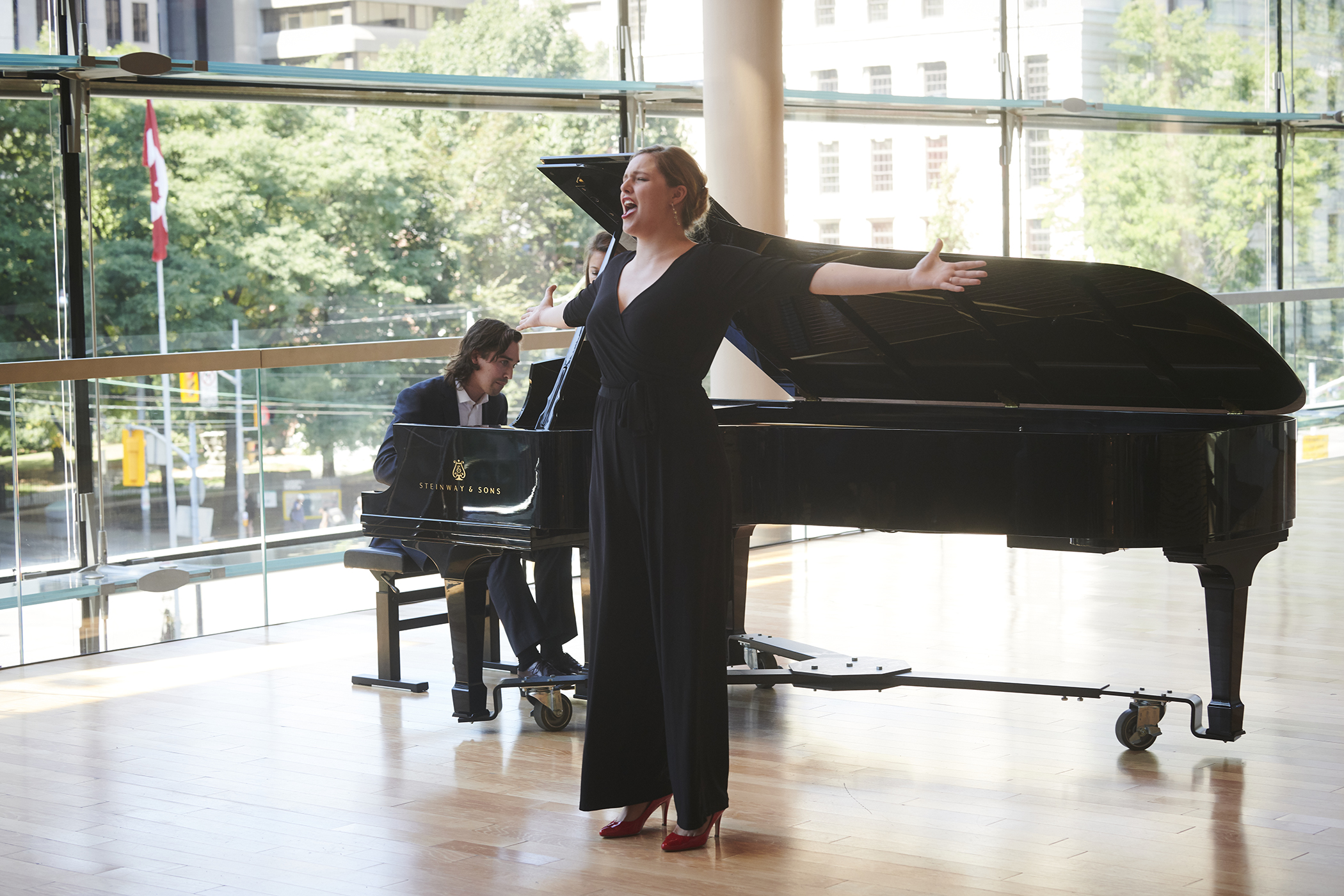Photography by Chris Hutcheson and Michael Cooper
Jamie Groote wanted to be a surgeon. That was until she played the lead role of Maria in her high school musical of West Side Story that is, when she realized that she couldn’t imagine doing anything but performing. She’s now in her first year of the Canadian Opera Company’s Ensemble Studio program as a mezzo-soporano and has her master’s degree in opera performance. She’ll also be performing for the first time in Popera, The Drake and Canadian Opera Company’s longstanding pop-up opera program, which brings some of the COC’s top up-and-coming performers to an unconventional performance space – Drake One Fifty, just down the street from the stunning home of the COC, the Four Seasons Centre for the Performing Arts.
Popera is all about showcasing the wonder that is opera in an approachable and alternative way, through not only the environment, but also through collaboration, such as the one coming up on March 21, which will see the Ensemble Studio be joined by XX for a one of a kind opera experience. In the lead up, we chatted with Jamie about her opera faves, tips for getting into opera if you have no idea where to start, and more.

In your opinion, what makes opera special and different from other art forms?
Opera, to me, is an open space for all types of artists. Unamplified singer-storytellers (we don’t use microphones!) and incredible orchestras tend to be the main attraction when we think of the opera, but there is so much more to the operatic team. Highly talented visual and conceptual artists are a huge part of the operatic experience. Lighting designers bring life to the singers on stage and work to create a fantastical world, costume designers work to seamlessly place the singers and actors within the story. Dancers and theatre actors routinely perform and bring their craft to the experience. Directors work to reflect human experience and make clear the story in order to affect audience members through the singers and stage action. Backstage teams of carpenters, crew members and stage management work to keep the whole production afloat. It takes an incredible village of people to create an effective production and the opportunities to heighten the artistic experience and make room for new artistic ideas seem limitless in both new works and old, well-known stories. Every production is so different and special in its own way. Opera truly is not just one thing, it is so so many things in endless combination.
What advice would you give someone who is opera-curious but is intimidated about getting started?
I would encourage new audience members to avoid being caught up in the stereotype of what they think opera is. There are no expectations of you as an audience member; we love to see full houses of people excited for an experience, whether this is their hundredth or first time at the opera house. All operas are incredibly different – think of all the different movies you have likely seen – opera is the same and there is an opera out there for you! Come marvel at the human voice, enjoy being immersed in the wash of orchestral sound, be intrigued by production choices, love or hate the show! Just be a part of the experience and take a moment away from the outside world. You are the perfect audience member already, just come and enjoy!
What is your routine the day of before a performance? Any rituals or superstitions?
I am really not a ritualistic or superstitious person although I know many many singers who are! My work happens in the day-to-day and so, to me, a show day shouldn’t be much different than a regular day of rehearsals if I have been taking care of myself. Usually I wake up and do some exercises to get my support muscles engaged and ready for their role in my day, then I do a slow warmup (and try not to freak out if I didn’t get enough sleep the night before because I was too excited for the show). Then I have breakfast and go about my usual day. Right before I get into wigs and makeup, I will do another brief physical warmup (some cardio to get my breath moving, some transverse muscle engagement exercises, lip trills, oblique stretches and tongue stretches…yes, tongue stretches!). I like to do this before my wardrobe call so I don’t mess with the hair and makeup team’s hard work. Then about 20 minutes before the show I do a bit more vocalizing, take a last peek at my score and any final rehearsal notes we have from the director and stage manager, and then I am off to the stage!
What is your dream role in an opera? Why?
I have so many roles I would love to perform but I think it would be amazing to premiere a major role in a newly composed opera. Because so many operas get reimagined and performed so frequently, we can often remember, or have heard about, iconic interpretations by other singers in our roles. This can make it challenging to really make a role your own. A new role is a completely open invitation to realize a character in the most genuine, “true to me” sort of way – without any biases or historical baggage – and I think it would be incredible to be part of a new, powerful story in that way.

What’s your favourite memory of The Drake?
Popera on March 21 will actually be my first time at The Drake! So I’m super excited for that to be my first Drake memory. Can’t wait!

